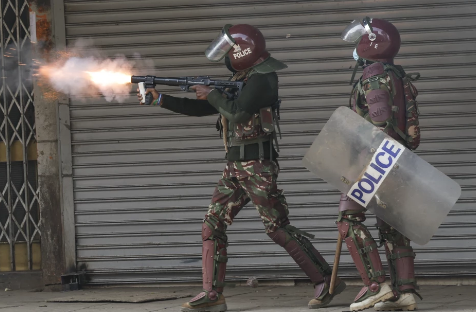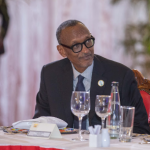The decision by Acting Inspector General of Police Douglas Kanja to ban demonstrations in Nairobi’s Central Business District (CBD) amid ongoing anti-government protests has sparked debate over the police service’s legal authority to issue such orders.
The ban was announced a day before planned protests, where predominantly youthful Generation Z activists intended to march to Uhuru Park and then to State House, calling for President William Ruto’s resignation.
In a statement, Acting IG Kanja cited concerns that disruptive elements planned to infiltrate the protests and noted that the lack of clear leadership among the Gen Z protesters complicated the police’s ability to ensure their safety. Consequently, he deemed it necessary to prohibit demonstrations until further notice to maintain public safety.
Constitutional lawyer Bobby Mkangi told Citizen Digital that the law does not grant the police the authority to ban demonstrations indefinitely. However, he noted that the Public Order Act does allow the police to prevent protests under two specific conditions: if another demonstration is taking place at the same location or if there is an imminent threat to the protesters or the public.
“The Constitution does not envisage any person or authority to ban a demonstration. The Public Order Act however permits the Police to stop or prevent the holding of a demonstration only in the cases where there is another demonstration planned at the same time (s) and venue (s) or where there is imminent danger to the demonstrators and others. The law however does not permit the Police to issue a blanket and indefinite ban or prohibition of demonstrations, “ Mkangi said.
The lawyer also noted that the law does not mandate that protesters must belong to a specific group or have a designated leader, as long as they notify the police in advance of their intention to hold the demonstrations.
In June, when protests erupted over the contentious Finance Bill 2024, activist Boniface Mwangi sent a letter to the police requesting the necessary security for the demonstrations.
“Additionally, The law does not require that those holding a public gathering or procession belong to a specific group or have a leader per se. It permits “Any person…” to notify the Police of the intention to hold the gathering or procession and that the organiser (s) as per the notification to the Police for the meeting/gathering/procession, be present during the duration of the meeting/gathering/ procession in order to assist the Police in maintaining the law and order,” he pointed out.
IG Kanja’s move to ban the protests in Nairobi was however suspended on Thursday after the High Court issued conservatory orders pending the hearing of a petition filed by Katiba Institute.
The lobby group argued that the acting IG’s actions were against public interest as it violated Article 38 of the Constitution which provides the right to assemble, picket and demonstrate peacefully.
“Pending the inter-parties hearing of the Application dated 18/07/2024, a conservatory order be and is hereby issued restraining the Inspector General of Police and other persons serving within the National Police Service, or acting in support of the National Police Service in the discharge of its law enforcement functions, from applying or enforcing the Inspector-General of Police’s impugned decision dated 17/7/2024,” High Court Judge Bahati Mwamuye said in his ruling.



